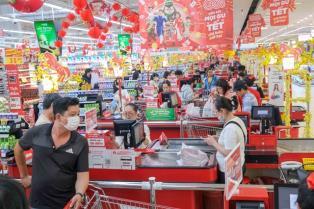Certification rates for quality products are still low, and weaknesses in value chain linkages, post-harvest processing and preservation are hindering the region’s competitiveness in wider markets.

SƠN LA — Tighter links across production, processing, preservation and consumption are critical to unlocking the full potential of agriculture in the northwest region, experts said.
In recent years, the region has made notable progress in shifting towards high-value crops, leveraging its favourable climate and terrain. Key products like coffee, tea and specialty fruits have recorded strong growth, with coffee cultivation expanding by 54 per cent and output increasing by 265 per cent over the past decade.
Yet, challenges persist, including low rates of product certification and limited capacity in post-harvest processing and preservation, which continue to hinder market competitiveness.
At a forum on connecting production and trade of agricultural and forestry products in the northwest region held in Sơn La Province on Tuesday, former deputy minister of Agriculture and Rural Development Lê Quốc Doanh said that better coordination across sectors is needed to address these gaps.
“The region must strengthen ties between production, processing and distribution,” he said.
“Farmers need access to scientific knowledge and modern techniques. Close cooperation among local authorities, businesses and central agencies is essential.”
Doanh said that new farming models, particularly in fruit and medicinal herbs, require updated cultivation and management practices. While progress has been made, the region still lags behind in quality certification compared to other parts of the country.
He urged more investment in competitive products, better farmer training, and the development of complete value chains from farm to market.
Smart farming push

Sơn La Province is positioning itself as a frontrunner in smart, sustainable agriculture.
Vice Chairman of the provincial People’s Committee Nguyễn Thành Công said that Sơn La is building a high-tech farming ecosystem, supported by government agencies, international partners, and private investors.
Technologies such as artificial intelligence, environmental sensors, and smart irrigation are already being deployed to improve productivity and product quality.
In neighbouring Điện Biên Province, efforts are underway to build certified raw material zones and boost branding for crops like Arabica coffee and Shan Tuyết tea also known as 'immortal tea'.
Deputy Director of the provincial Department of Agriculture and Environment Lò Hồng Phong said Điện Biên now has five concentrated fruit-growing areas across 3,000 hectares, suitable for crops like mango, pomelo, pineapple, macadamia, tea, and coffee.
However, he pointed to continued obstacles, such as weak links between farmers and businesses, underdeveloped logistics, and limited deep processing capacity.
Phong called for greater support from the central government, including concessional loans, farmer training and regional brand development. He also urged stronger cooperation between cooperatives and processors to build robust value chains for products such as Sơn La–Điện Biên coffee and Tà Xùa–Tủa Chùa tea.
Medicinal potential
Meanwhile, Lai Châu Province is emerging as a hub for medicinal herbs, with over 23,000 hectares under cultivation. Major products include cinnamon, cardamom, sa nhân (Wurfbainia sp.), sơn tra (Docynia indica) and the highly valued Lai Châu ginseng.
Annual output of medicinal plants stands at around 3,000 tonnes. But policy barriers remain, particularly in issuing cultivation codes for Lai Châu ginseng.
Bùi Huy Phương, Director of Lai Châu’s Department of Agriculture and Environment, called for a dedicated policy framework to support investment, cultivation and processing of Vietnamese ginseng.
“Lai Châu ginseng is a culturally and economically significant species,” he said.
“We need policies that reflect its unique value and ensure sustainable development.” — VNS




